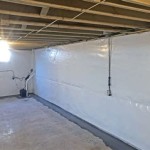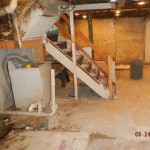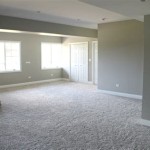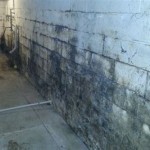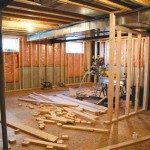Essential Aspects of Selecting the Most Reliable Dehumidifier For Basement
Maintaining a healthy and comfortable environment in your basement requires effective moisture control. Excess humidity can lead to mold growth, damage to belongings, and even compromise air quality. Choosing the right dehumidifier is crucial to address these issues effectively.
1. Capacity and Coverage Area
The capacity of a dehumidifier is measured in pints per day (ppd). Determine the size of your basement and the amount of moisture it generates to select a dehumidifier with adequate capacity to meet your needs. Generally, a basement of up to 1,000 square feet requires a dehumidifier with a capacity of 50-70 ppd.
2. Energy Efficiency
Dehumidifiers consume electricity, so energy efficiency is an important consideration. Look for Energy Star-certified models that meet efficiency standards. A higher Energy Factor (EF) rating indicates lower energy consumption. EF values range from 1 to 3, with higher values representing greater efficiency.
3. Drainage Options
Dehumidifiers collect condensed water, which needs to be drained regularly. Choose a model with a continuous drain option to eliminate the need for manual emptying. A garden hose or drain line can be attached directly to the dehumidifier for automatic drainage.
4. Noise Level
If your basement is a living or work area, noise levels may be a concern. Look for dehumidifiers with low noise ratings, typically measured in decibels (dB). Models with noise levels below 50 dB are generally considered quiet.
5. Features and Settings
Consider additional features that enhance convenience and functionality. Adjustable humidity settings allow you to customize the desired humidity level. Auto-restart ensures the dehumidifier resumes operation after a power outage. A built-in humidistat automatically turns the dehumidifier on and off to maintain a preset humidity level.
6. Maintenance and Warranty
Regular maintenance is essential to keep your dehumidifier operating efficiently. Look for models with easily accessible air filters and drain pans for cleaning. A longer warranty indicates the manufacturer's confidence in the product's durability and reliability.
7. Brand Reputation and Customer Reviews
Research different brands and read customer reviews to gain insights into the performance and reliability of specific dehumidifier models. Positive feedback and high ratings can provide confidence in your purchase decision.
8. Smart Features
Some advanced dehumidifiers offer smart features such as remote control via smartphone apps. These apps allow you to monitor humidity levels, adjust settings, and receive alerts remotely. Smart features enhance convenience and provide real-time information about your basement's humidity conditions.
Conclusion
Choosing the right dehumidifier for your basement requires careful consideration of various factors. By evaluating the capacity, energy efficiency, drainage options, and additional features discussed in this article, you can make an informed decision that will effectively control humidity, improve air quality, and protect your basement from moisture-related issues.

The Best Dehumidifiers For Basements In 2024 Popular Science

The Best Dehumidifiers For Basements In 2024 Popular Science

The Best Dehumidifiers For Basements In 2024 Popular Science

5 Best Dehumidifiers Of 2024 Tested By Experts

6 Best Dehumidifiers For Basements Of 2024 Tested By Experts

The 3 Best Dehumidifiers Of 2024 Reviews By Wirecutter

The Best Dehumidifiers For Basements In 2024 Popular Science

6 Best Dehumidifiers For Basements Of 2024 Tested By Experts

Honeywell Smart Wi Fi Energy Star Dehumidifier For Basement Large Room Up To 4000 Sq Ft Walmart Com

Best Dehumidifiers For Basements 2024 Forbes Vetted

